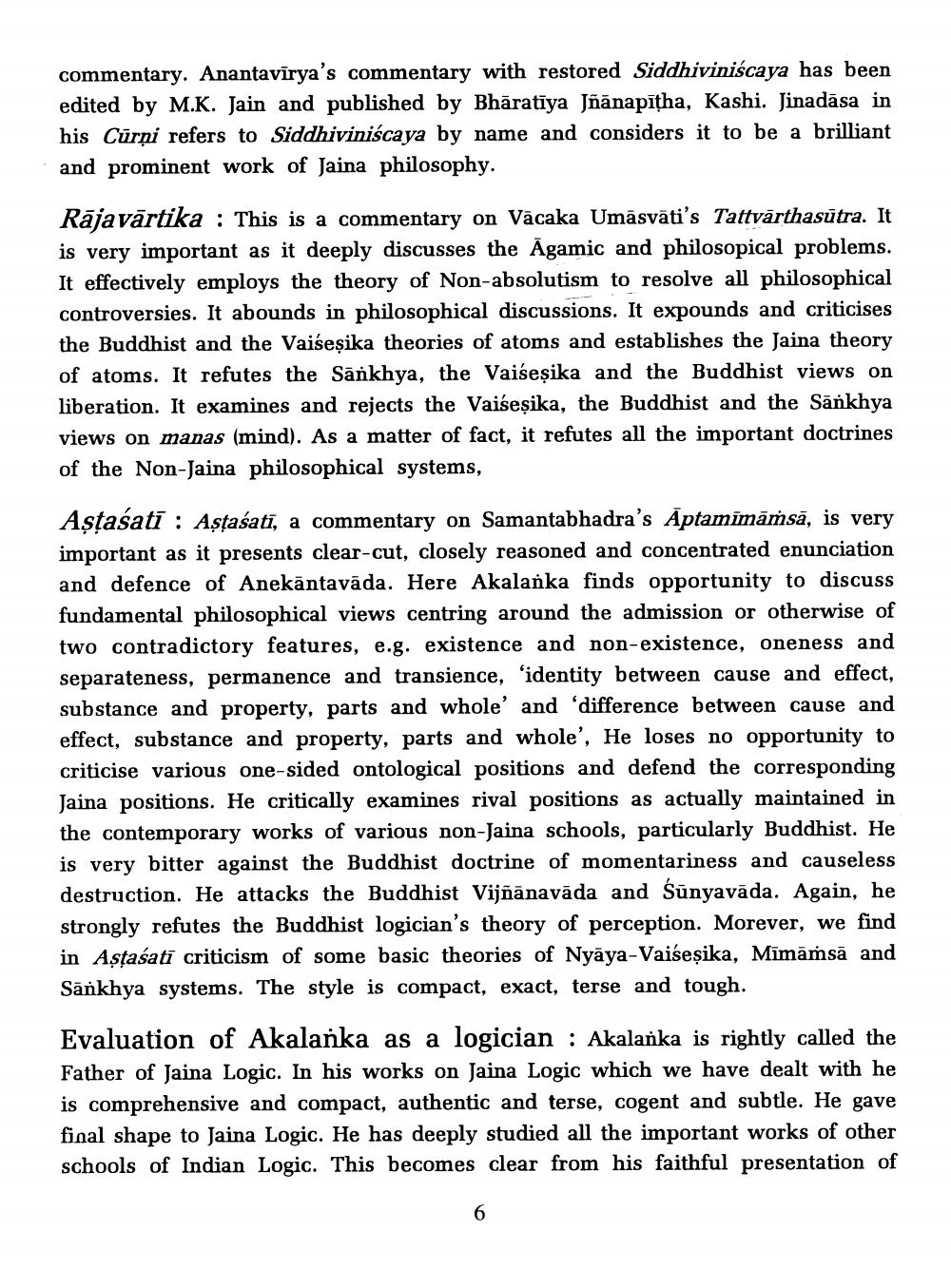________________
commentary. Anantavīrya's commentary with restored Siddhiviniscaya has been edited by M.K. Jain and published by Bhāratiya Jñänapītha, Kashi. Jinadāsa in his Cūrni refers to Siddhiviniscaya by name and considers it to be a brilliant and prominent work of Jaina philosophy.
Rājavārtika : This is a commentary on Vācaka Umāsvāti's Tattvārthasūtra. It is very important as it deeply discusses the Āgamic and philosopical problems. It effectively employs the theory of Non-absolutism to resolve all philosophical controversies. It abounds in philosophical discussions. It expounds and criticises the Buddhist and the Vaiseșika theories of atoms and establishes the Jaina theory of atoms. It refutes the Sānkhya, the Vaiseșika and the Buddhist views on liberation. It examines and rejects the Vaiseșika, the Buddhist and the Sānkhya views on manas (mind). As a matter of fact, it refutes all the important doctrines of the Non-Jaina philosophical systems,
ī: Astašati, a commentary on Samantabhadra's Aptamīmāṁsā, is very important as it presents clear-cut, closely reasoned and concentrated enunciation and defence of Anekāntavāda. Here Akalanka finds opportunity to discuss fundamental philosophical views centring around the admission or otherwise of two contradictory features, e.g. existence and non-existence, oneness and separateness, permanence and transience, 'identity between cause and effect, substance and property, parts and whole' and 'difference between cause and effect, substance and property, parts and whole', He loses no opportunity to criticise various one-sided ontological positions and defend the corresponding Jaina positions. He critically examines rival positions as actually maintained in the contemporary works of various non-Jaina schools, particularly Buddhist. He is very bitter against the Buddhist doctrine of momentariness and causeless destruction. He attacks the Buddhist Vijñānavāda and Śūnyavāda. Again, he strongly refutes the Buddhist logician's theory of perception. Morever, we find in Aşțaśati criticism of some basic theories of Nyāya-Vaiseșika, Mīmāṁsā and Sānkhya systems. The style is compact, exact, terse and tough.
Evaluation of Akalanka as a logician : Akalanka is rightly called the Father of Jaina Logic. In his works on Jaina Logic which we have dealt with he is comprehensive and compact, authentic and terse, cogent and subtle. He gave final shape to Jaina Logic. He has deeply studied all the important works of other schools of Indian Logic. This becomes clear from his faithful presentation of




